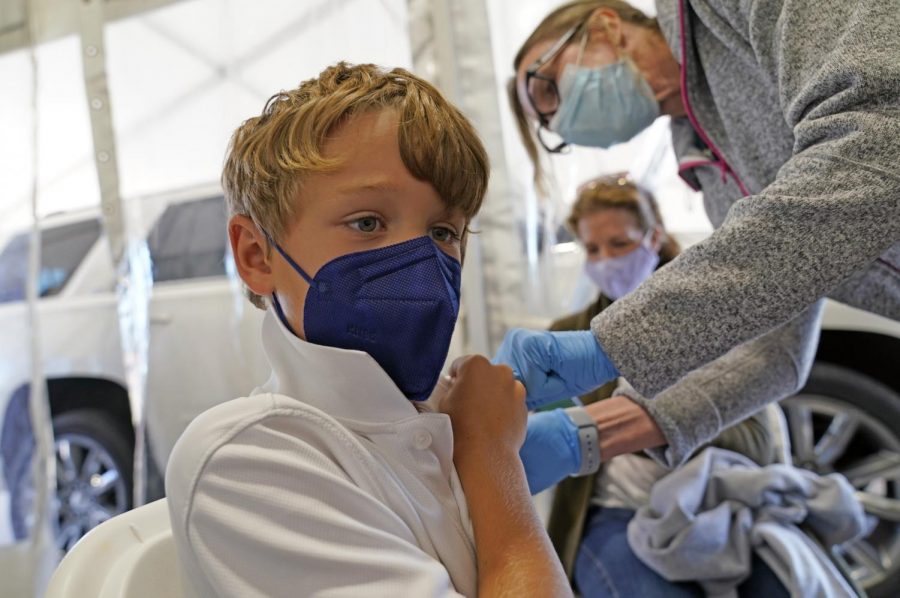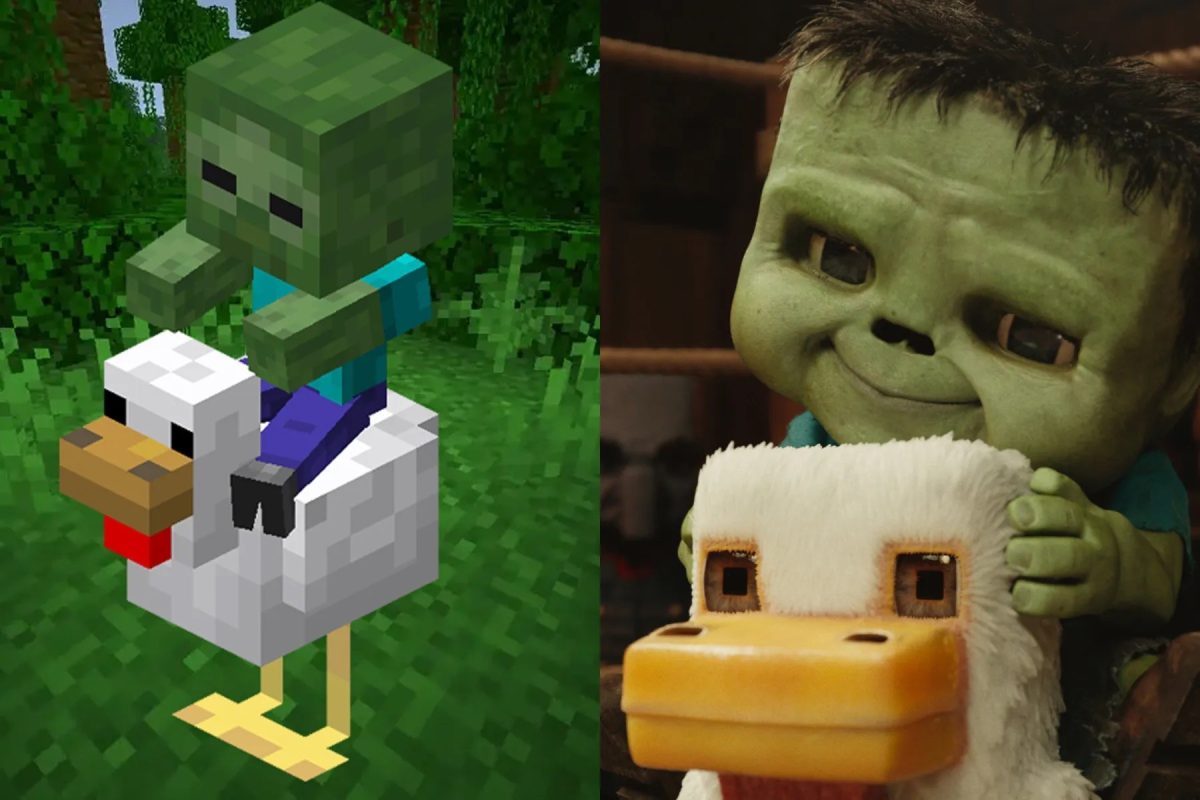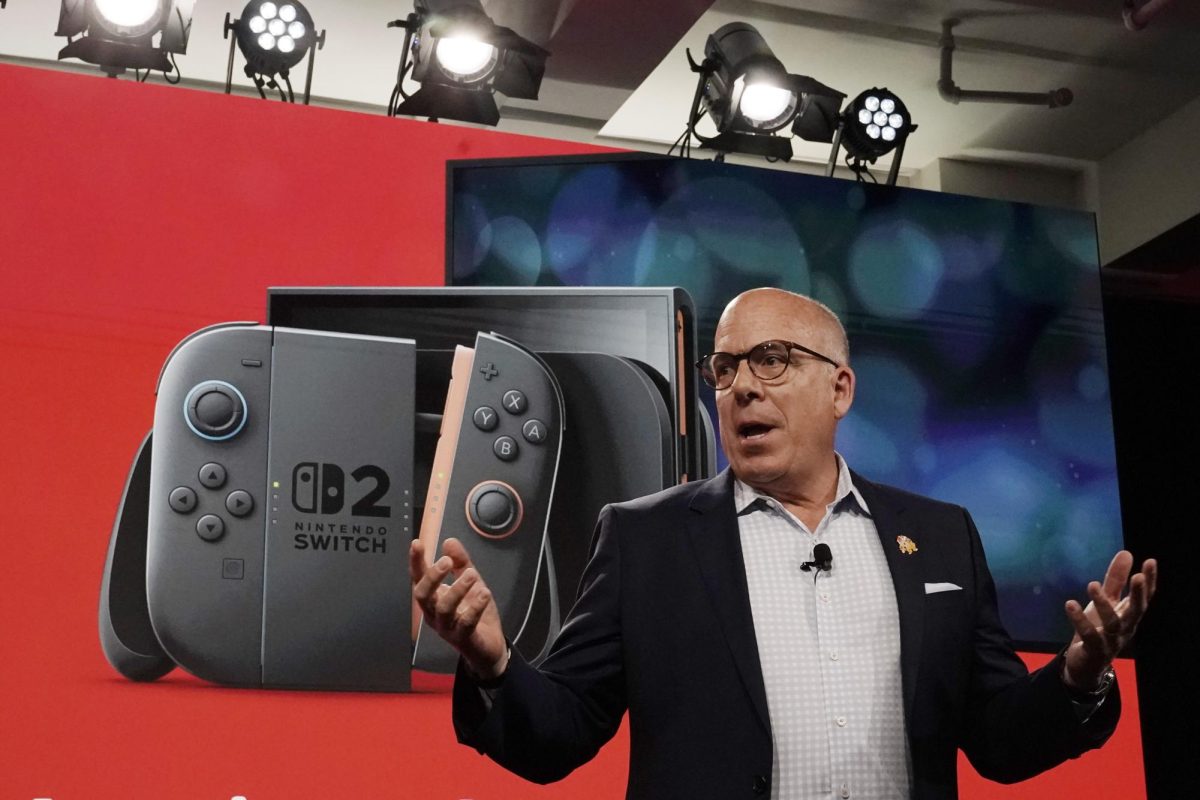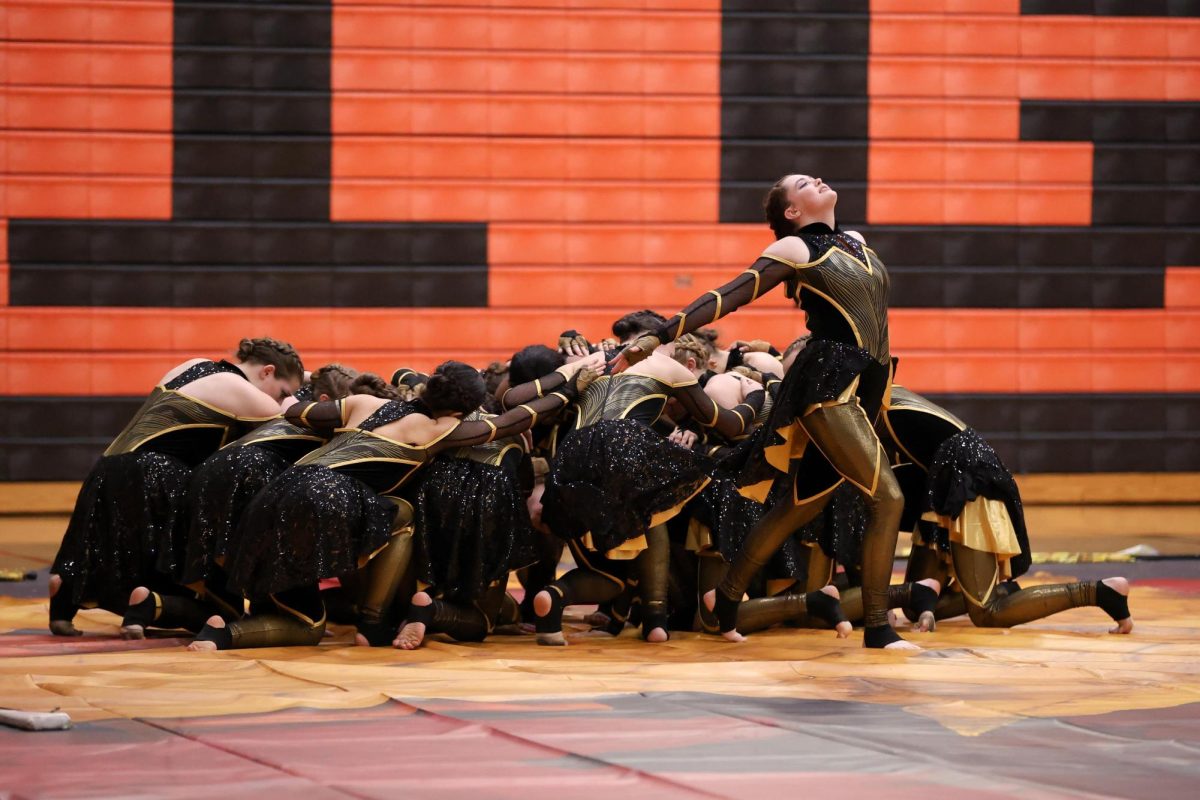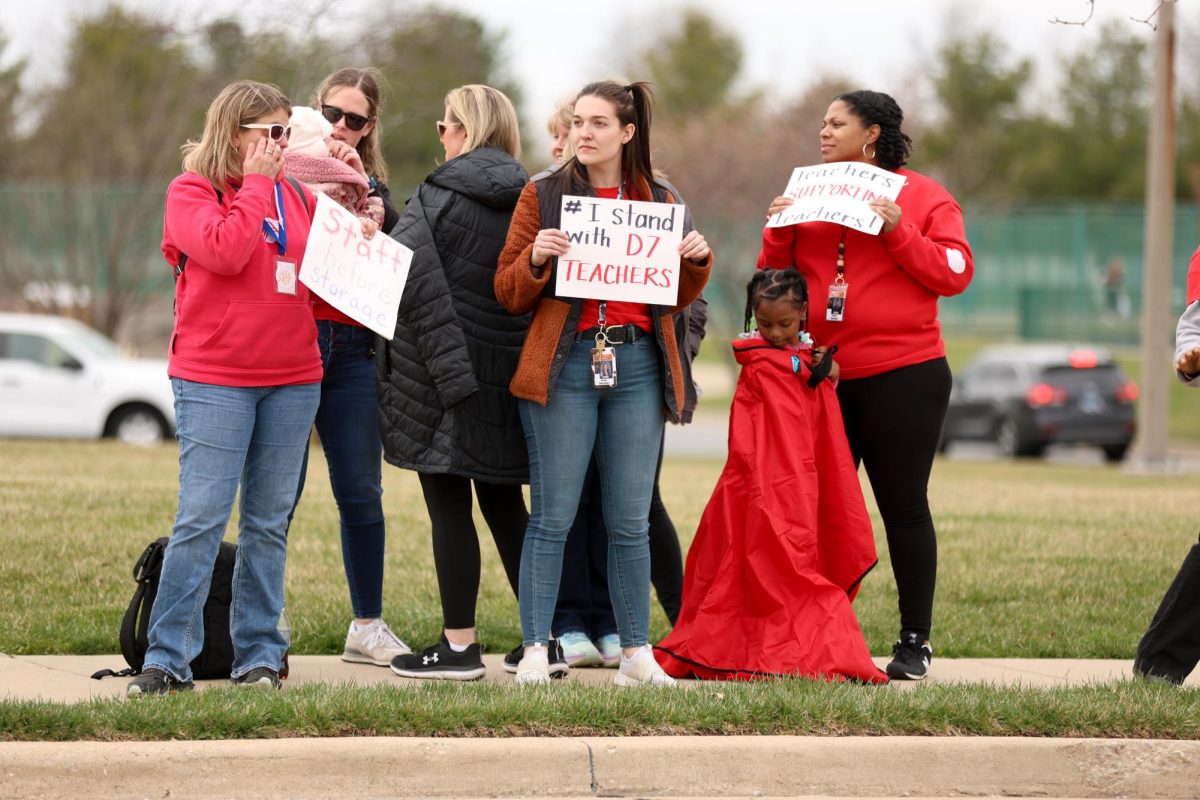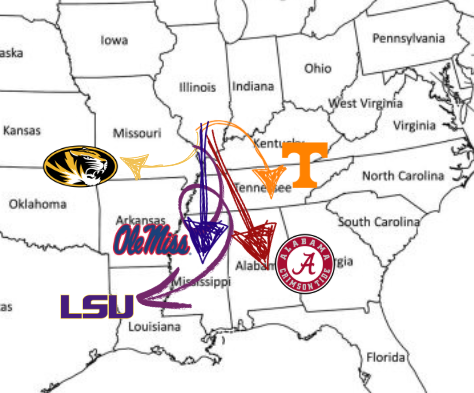FDA and CDC Recommend COVID Vaccine for Children Ages 5 to 11
An 8-year-old receives the Pfizer vaccine after it was cleared by the FDA for emergency use. Shipments of child-size doses of the vaccine have already been shipped across the country.
November 5, 2021
10 months and 16 days.
That’s how long it’s been since the first vaccine was given in America, according to the FDA. Since that time, 17,961 children have died from the virus.
Those over 12 can already get the vaccine, but now the collective United States is entering into a new period of its fight against COVID: vaccinating children ages 5-11.
On Oct. 26, the FDA’s vaccine advisory panel recommended the shot for the younger age group.
“The consideration comes at a critical time as we head into the fall and winter when we typically deal with more viruses including colds, flu, and RSV,” Dr. Gigi Gronval of Johns Hopkins said. “More than 190 million people ages 12 and up in the U.S. have been fully vaccinated, and an estimated 28 million children are now eligible.”
Since that time, further strides have been made to get the vaccine to children, according to the CDC.
Both Pfizer and Moderna have submitted their vaccines for use with the age group. An Emergency Use Authorization was also submitted to the FDA for the Pfizer vaccine.
On Tuesday, CDC advisors recommended Pfizer’s low-dose vaccine for use with children ages 5-11 by unanimous vote. Subsequently the director, Dr. Rochelle Walensky, endorsed said recommendation, allowing the use of Pfizer for kids.
According to CNN, many vaccination cites had already received low-dose shipments of the vaccine in preparation for the decision, and have since begun the vaccination process.
Senior Carter Schwalb, whose sister Avery turned 12 and got vaccinated on Oct. 13, said the faster kids get protected the better. Avery is a twin, and their third sibling Meredith has an autoimmune disorder that puts her at greater risk from COVID.
“Avery getting the vaccine has put everyone at much greater ease, since she goes to school with lots of kids with varying opinions on mask-wearing,” Schwalb said.
Schwalb urges parents to do their own research and get their children the shot.
“All around us, though we cannot tell, there are people with pre-existing conditions that make them particularly susceptible to the symptoms of COVID,” Schwalb said.
“Getting vaccinated is not only to protect the individual, but also to prevent spreading the virus to people with a greater risk of severe COVID.”
But senior Alissa Mollett, with two brothers at 6 years and 9 months old, has a differing perspective on this development.
“My mom is currently the only one in my family vaccinated,” Mollett said. “My dad does not want to be vaccinated or to have any of his kids vaccinated, so [increased availability] probably won’t affect my family very much at all.”
That said, the prospect of her 6-year-old brother’s peers being vaccinated is a small comfort to Mollett.
“[This matters] only in the sense that the more people are vaccinated, the slower COVID will spread. If his classmates can contribute to that while he can’t, I can consider it a good thing. As long as the potential long-term effects of the vaccine are studied thoroughly.”
In the future, Mollett says she may be more open to the vaccine both for herself and her siblings.
“Once more time has passed, I would very much be more open to the vaccine. I think whether my brother gets it is up to him and my parents to decide. He is a very opinionated 6-year-old.”


